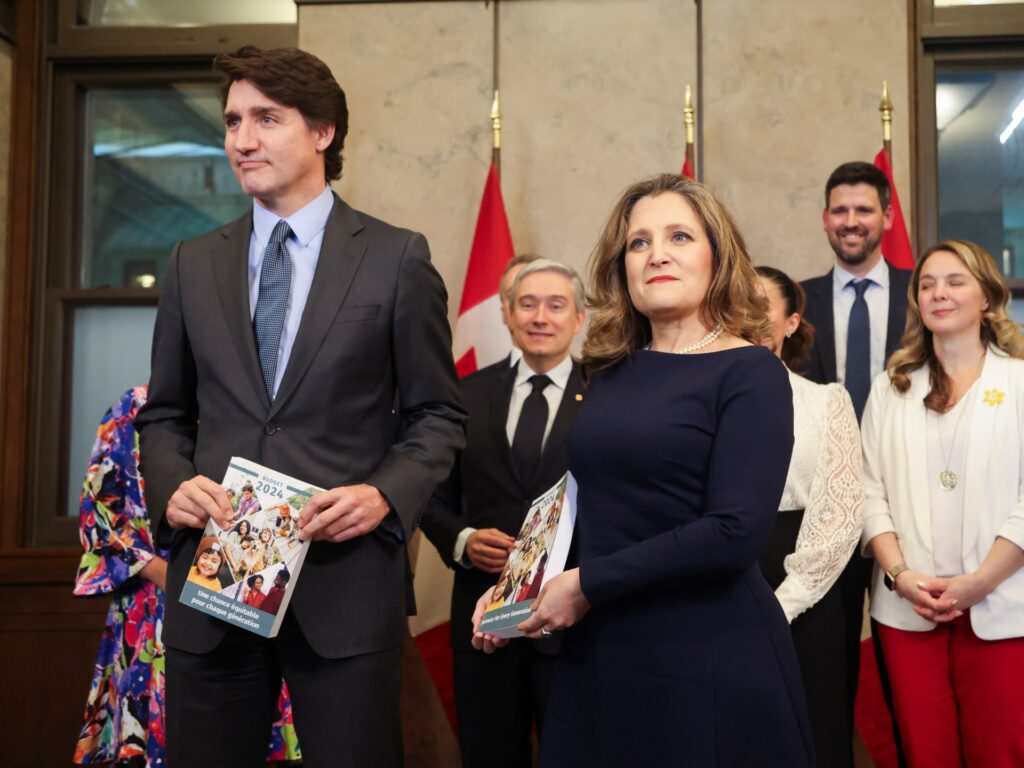The budget proposes higher capital gains taxes and billions of dollars in spending on education, housing, employment and mental health.
Canada will seek higher taxes on the wealthy as Prime Minister Justin Trudeau's government seeks to shore up sluggish support among young people ahead of a general election expected next year.
Billions of dollars will be invested in education, housing, employment and mental health services, while the wealthiest Canadians will pay more, Finance Minister Chrystia Freeland said in Tuesday's annual budget announcement. said.
The budget proposes C$53 billion ($38 billion) in new spending over five years, much of it in the form of affordable housing, student grants and loans, rental subsidies, and work placement programs. is aimed at Millennials and Gen Z.
Under the proposal, capital gains over C$250,000 ($180,804) would be taxed from 50% to 66.7%, raising revenue by nearly C$20 billion ($14.5 billion) over five years. It turns out.
Freeland said the opportunity for young people to build a comfortable middle-class life “has always been Canada's promise.”
“But today, Millennial and Gen Z Canadians can get good jobs, they can work hard, they can do everything their parents did and more, but the rewards are out of reach. “Too often, it's just out of place,” she says.
“They look at their parents' lives and wonder, 'How can I afford that?'”
Freeland acknowledged that tax increases would generate some backlash, but said they would ensure the wealthiest pay their fair share.
“But before they complain too hard, I want one per cent of Canada, 0.1 per cent of Canada, to think about this: What kind of Canada do you want to live in?” she says. I did.
The Business Council of Canada (BCC) slammed the proposed budget as “good politics for some” but “bad economic policy for everyone.”
“Wealth redistribution is not wealth creation, and the spending measures introduced today will provide Canadians with the strong and sustained economic growth they deserve,” BCC President and CEO Goldie Heider said in a statement. “It will leave them burdened with debt without promoting it.”
For the budget to pass parliament, it will need support from the left-leaning New Democratic Party, which maintains Prime Minister Trudeau's minority government.
Prime Minister Trudeau's Liberal government is lagging far behind Pierre Poièvre's Conservative Party ahead of a general election scheduled to be held by the end of October 2025.
Prime Minister Trudeau, who has led Canada since 2015, has seen his popularity plummet amid widespread dissatisfaction over the cost of living and housing.
A poll released in January by Nanos Research found that two in three Canadians said Prime Minister Trudeau was not doing enough to address affordable housing issues.
Earlier this month, Prime Minister Trudeau announced plans to build about 3.9 million homes by 2031 to bridge the huge gap between housing supply and demand.


